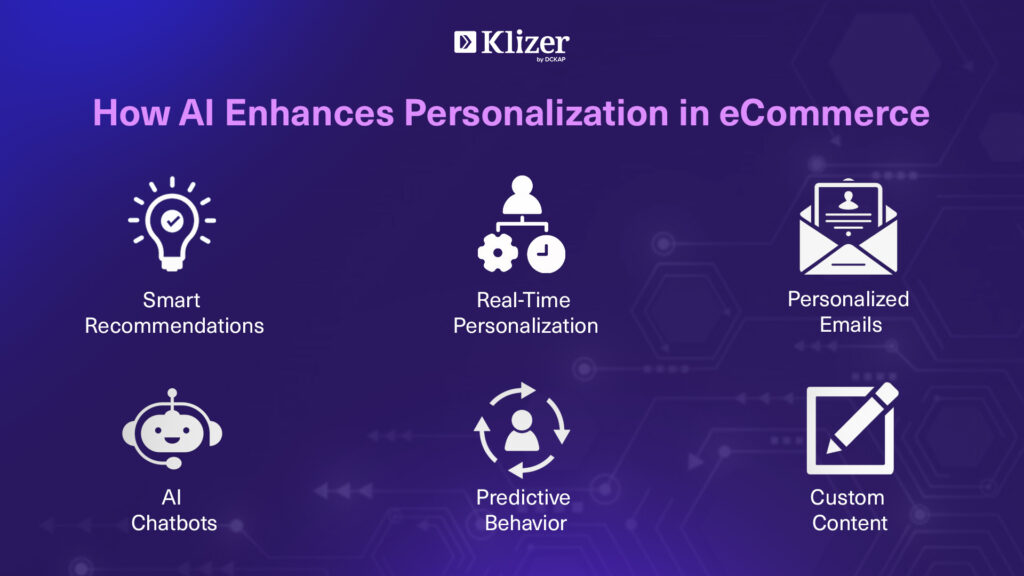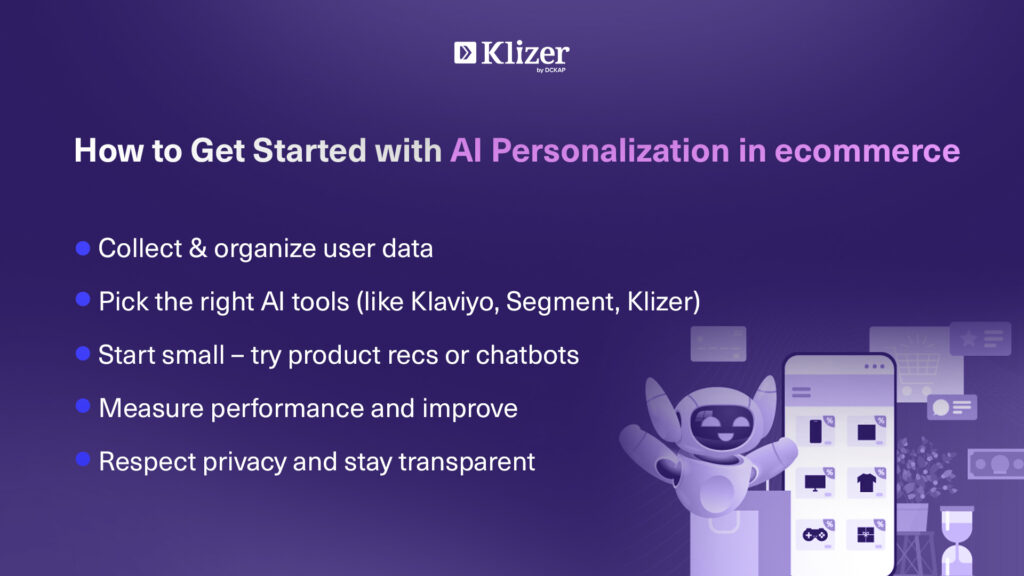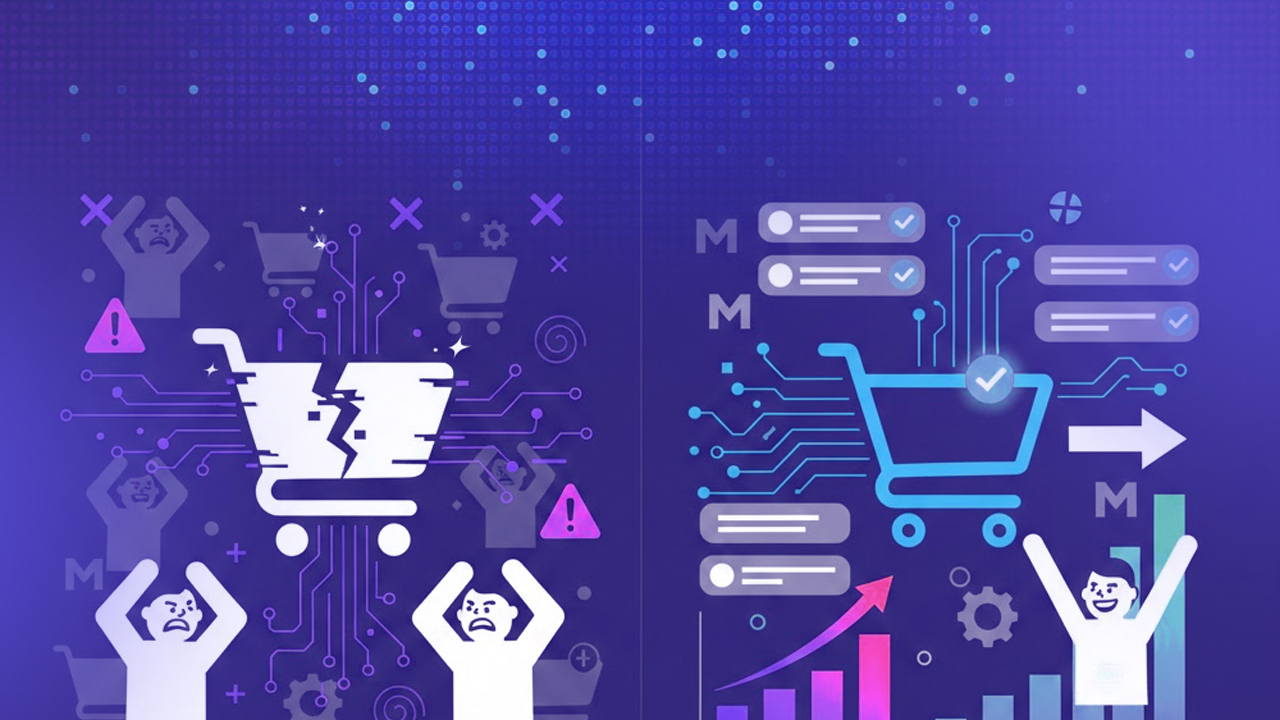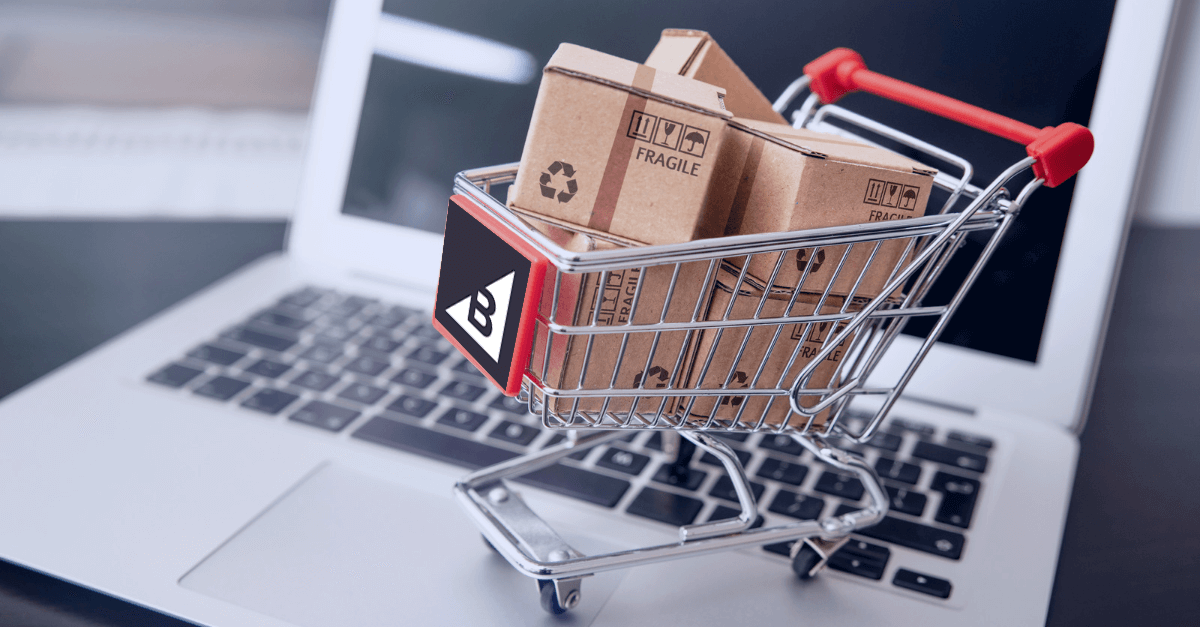Anyone shopping for something definitely does not want to scroll through hundreds of products that may not interest them. Instead, they want a shopping experience that is tailored just for them. Now, ecommerce store owners don’t need to worry as artificial intelligence (AI) is here to fulfill this wish.
In this blog, we will learn about:
- What is ecommerce personalization
- Why is personalization important for an online store
- Ways AI can help make personalization smarter and more efficient
- Real-life examples and statistics
- What businesses can do to get started with AI ecommerce personalization
ON THIS PAGE
Understanding eCommerce Personalization
eCommerce personalization means showing each customer the products, offers, and content that match their interests or behavior and needs. Online stores create a custom shopping experience for each individual based on buyer data instead of treating everyone the same.
This can be:
- Personalized product recommendations
- Targeted email marketing
- Customized homepage layouts
- Dynamic pricing based on user behavior
- Special offers for loyal customers
The goal is simple: make the shopping experience relevant, helpful, and more enjoyable. When done well, personalization helps customers find what they exactly want, which encourages them to buy more.
Why Personalization Matters in eCommerce
Let’s have a look at some statistics that show why personalization is so important in ecommerce:
- 71% of consumers say they’re more likely to buy from brands that offer personalized experiences.
- 81% of shoppers appreciate brands that understand their preferences and needs.
- Personalized product suggestions can lead to a 26% increase in sales.
- 56% of customers say that they are more likely to return to an online store that tailors a shopping experience to them.
How AI Makes eCommerce Personalization Better
Here is how AI is making personalization better and helping businesses grow:

1. Smart Product Recommendations
AI looks at what customers search, view, click, and buy. It then uses this information to display similar or related products. The idea is quite similar to how Netflix recommends shows and Spotify recommends music.
For example: If you buy a phone online, the AI may suggest a phone case, a charger, or even a screen protector—basically, what other people also bought.
2. Real-Time Personalization
AI can update content and offers in real time, depending on what the customer is doing. So, each shopper sees a different, personalized view of the site—even during the same visit.
It can also change:
- Prices (dynamic pricing based on demand or past behavior)
- Offers (limited-time deals for specific users)
- Landing pages (featuring products relevant to your interests)
3. Personalized Emails and Messages
AI helps send emails that are more relevant by:
- Including products the customer is likely to want
- Sending at the best time for each person
- Using past behavior to customize offers
These AI-powered emails are much more effective than generic ones as they show:
4. AI Chatbots and Virtual Assistants
Modern chatbots go well beyond simple queries. With AI, they can:
- Suggest products based on what a user says
- Guide users to the right page
- Offer help 24/7
This helps you offer better customer service, which can help you increase sales.
5. Predicting What Customers Want
AI can guess what a customer will want next based on their habits. For example:
- If a customer usually buys baby products, AI can encourage him to buy diapers before he runs out.
- If that customer usually shops during the weekends, it can time offers accordingly.
These smart forecasts result in faster and smoother shopping experiences.
6. Personalized Content Creation
There are some AI tools that write personal product descriptions, headlines, and marketing content. This helps companies scale their content without losing that personal touch.
Real-Life Examples of AI eCommerce Personalization in Action
Now that we’ve covered these cases, let’s look at how real brands are using AI for personalization:
Saks

A luxury fashion brand, Saks, used AI to personalize its website’s homepage for shoppers.
They saw:
Mastercard

Mastercard uses AI to track more than 159 billion transactions every year. While much of that helps prevent fraud, it also powers personalization tools like Shopping Muse, which recommends products to users based on their spending habits.
Challenges of Using AI in eCommerce Personalization
Here are some statistics that show common challenges ecommerce businesses face:
- 96% of online retailers report having issues with personalization, such as not having the right data or the right tools.
- 82% of companies report struggling with managing real-time customer data.
- Some shoppers feel uncomfortable when personalization gets “too personal” or creepy.
Tips to Overcome These Challenges
To address these challenges, businesses need to:
- Use clean, secure customer data
- Be transparent about AI use
- Start small and gradually increase their personalization level
How Businesses Can Get Started with AI Personalization in ecommerce
If you run an online store and want to add AI-powered personalization, here are some basic steps to follow:

1. Collect and Organize Customer Data
Use tools that track what users do on your site: what they view, click, and buy.
2. Choose the Right AI Tools
There are many AI personalization tools out there, such as Dynamic Yield or Segment, Klaviyo, etc. Start with tools whose cost and capabilities meet your needs.
3. Keep It Simple
Take smaller steps first, such as:
- Product recommendations
- Personalized emails
- Basic chatbot assistance
Then explore deeper and more complex features
4. Measure and Improve
Track the results, like how many people are buying, clicking, and returning, and keep improving the experience.
5. Respect Privacy
Make sure you follow privacy laws and keep customer trust. Let people know what’s happening with their data and give them control over it.
Conclusion
AI eCommerce personalization helps online stores show the right products to the right people at the perfect time. It makes shopping easier for customers and helps businesses grow by increasing sales. With the help of smart tools, you can give every shopper a more personal and better shopping experience.To get started, you can partner with an Enterprise eCommerce Solution partner like Klizer or explore our advanced AI solutions that are designed just for your online store.










